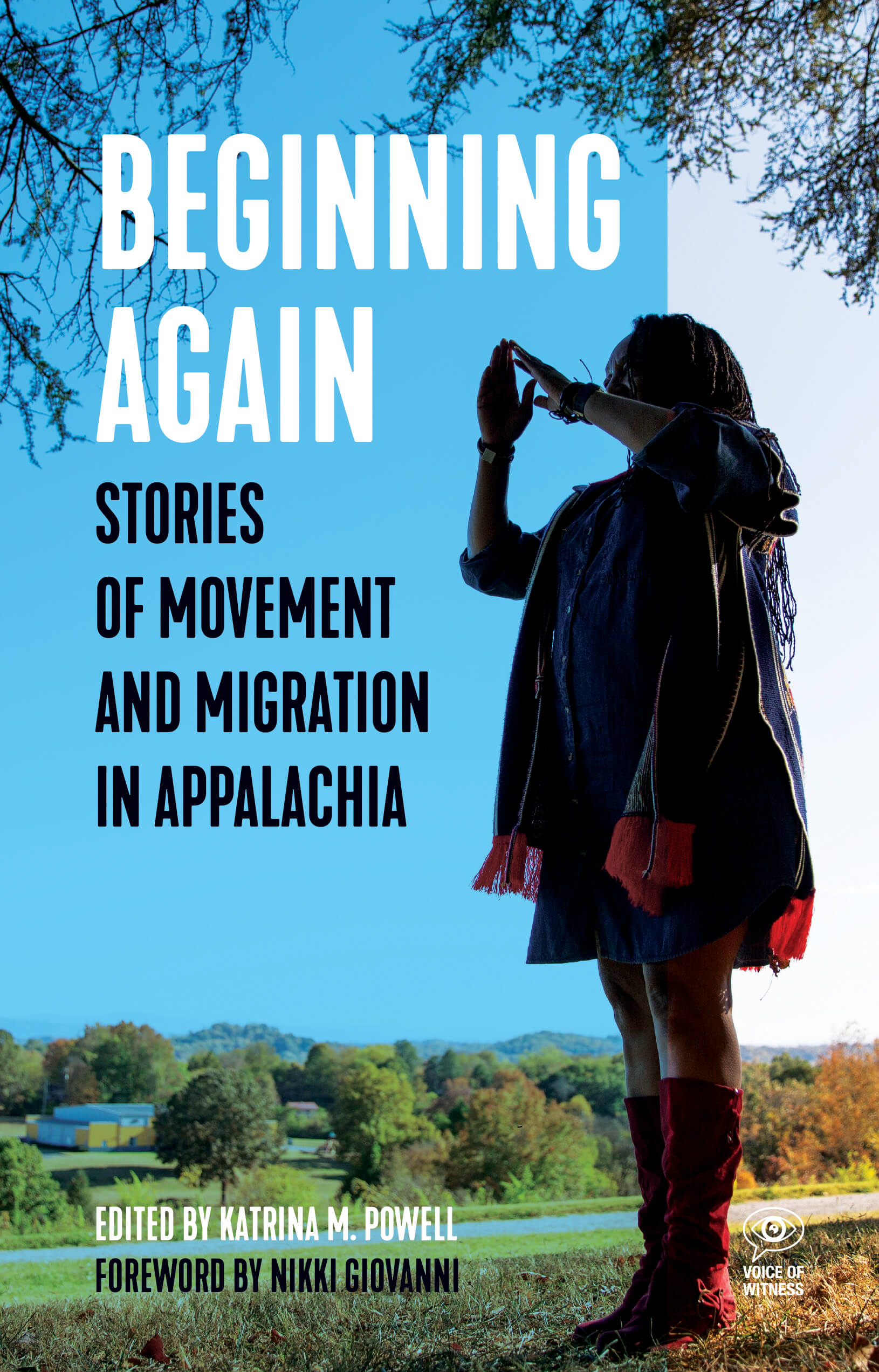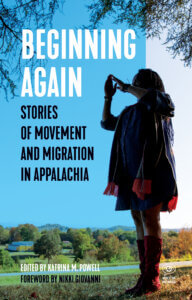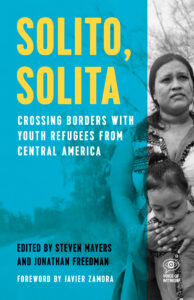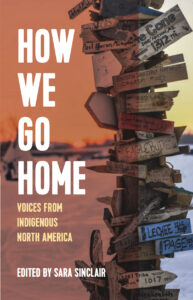The Voice of Witness book series amplifies the stories of people directly impacted by—and fighting against—injustice. We use an oral history methodology that combines ethics-driven practices, journalistic integrity, and an engaging, literary approach.
The books explore issues of inequity and human rights through the lens of personal narrative. Each project aims to disrupt harmful narratives by supporting historically marginalized or silenced communities to tell their own stories in their own words.
Book clubs are useful tools for engaging and interacting with these oral histories and the issues they highlight. Find our handout with guidance on planning and facilitating one here.
Use the questions below to start a book club or discussion about Beginning Again: Stories of Movement and Migration in Appalachia.
Discussion Questions:
- Beginning Again seeks to complicate simplistic stories about displaced people and to resist stereotypes of Appalachia as a region. In what ways did these stories add depth to flattened perceptions of the Appalachian region and its people?
- Though many narrators discuss being displaced from their country of origin and resettling in Appalachia, there are also many ways in which the narrators rebuild community and create a new home in the region. How did individual narrators in Beginning Again discuss the idea of “home”?
- Mekyah Davis says, “If we all just decided that Appalachia is irredeemable and can’t be safe, then who’s going to fix it while we’re all away?” How does Mekyah’s narrative both acknowledge the difficulties and celebrate the positive aspects of living in Appalachia?
- Many narrators bring up different barriers to accessing education and opportunity. How can this issue be addressed, both on a community level and on a national or societal level?
- Sohaila says, “Everyone says, ‘Sohaila, you should be happy now. You have an apartment. You have a good job. A is happy in school. Why are you still so sad?’” What does Sohaila’s narrative tell us about the nature of trauma, and what can we learn about supporting the people in our lives with traumatic experiences in their past?
- Rufus Elliott, Barte Laney, Cindy Sierra Morales, and other narrators discuss whether or not they identify as Appalachian. What factors go into whether or not narrators call themselves Appalachian? For the narrators that do consider themselves to be Appalachian, what does the term mean to them?
- Hannah Martin’s narrative highlights the popular perception of Appalachia as a discriminatory, non-inclusive region for LGBTQIA+ individuals. What does Hannah’s story tell us about this portrayal? How do other narrators with marginalized identities describe their experiences living in Appalachia?
- Narrators like Sheng Thao, Babakir, and Claudine Katete shed light on the experiences of refugee individuals and families living in Appalachia. What was the impact of reading their firsthand accounts? What can we learn from these narratives, and what actions can be taken?
- Elvir Berbić discusses volunteering with a soccer program for refugee boys, saying “I give back this way because I remember those years, and I never had anybody to guide me.” What do the narratives in Beginning Again tell us about the significance of community?
- What other themes emerged for you reading Beginning Again? What surprised, challenged, or impacted you the most? What have you learned about migration, Appalachia, and the people who live there?




